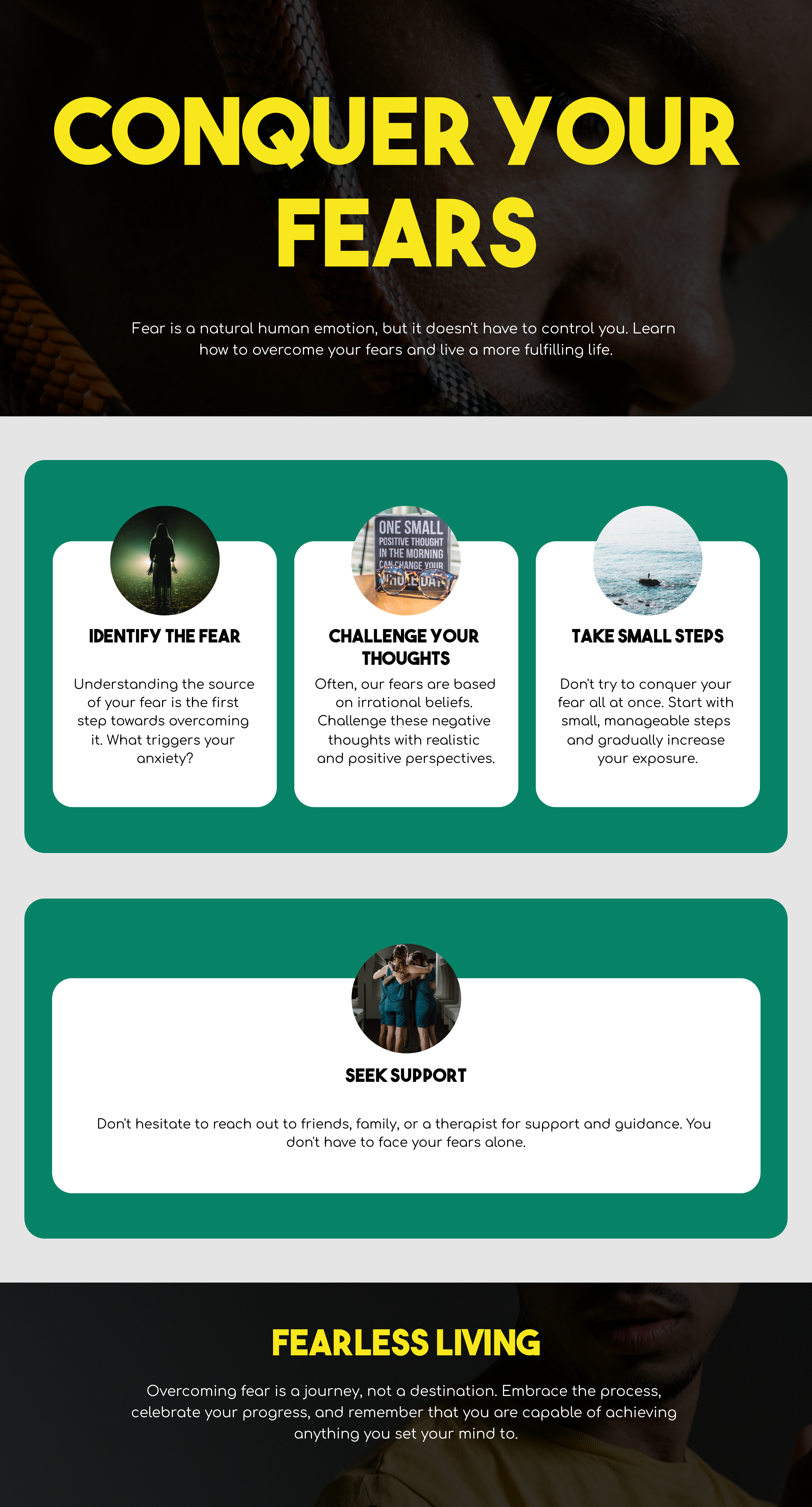How to Overcome Fear: A Simple Guide
Fear can hold us back from taking chances or following our passions, so in this post, let’s look at ways of understanding fear and finding ways to overcome it so you can live an inspired and courageous life! Let’s get going!
What Is Fear?
Fear is an instinctual emotion designed to keep us safe. It arises whenever we feel threatened or in danger – whether this involves crossing an active street, for example, or more abstract threats such as worrying that one may fail a test.
Fear often causes our bodies to react in various ways: your heart may race, palms might sweat and you could experience nervous or anxious feelings as your nervous system prepares itself either to fight back or run. But sometimes fear becomes too great and prevents us from reaching out our goals and moving forward in life.
To understand fear, you need to discover its source. Could be something from your past that’s bothering you or possibly what other’s expect of you. Once you identify its origins, you can start taking steps toward controlling it instead of letting it rule your life; see it instead as a signal from within telling you something needs attention and address that directly instead of simply accepting that something might go amiss in life.
Fear Affects Our Lives Fear has the ability to have a huge effect on our lives, from making us anxious and keeping us from taking steps that we want, all the way up to holding us back from going after them altogether. Worries about failure or rejection make people hesitate or hold back from doing what’s necessary – in other words: fear can paralyze.
Emotionally, fear causes stress that has detrimental consequences to both mental and physical wellbeing. Perpetual worry saps energy away and prevents us from fully appreciating life’s pleasures.
Fear can make us retreat socially, leading us to fear being accepted, which could deteriorate relationships and harm them in turn.
Fear can stop us from being creative at work and sharing ideas due to fear of judgment, as well as prevent us from taking up leadership roles or taking risks that would help our growth.
Fear can play an integral part in all areas of our lives and being aware of its effect can help take back control.
How to overcome fear
Here Are A Few Simple Solutions To Overcome Fear: Here are a few methods you can employ in order to overcome fear:
Identify Your Fears: Write Down Everything that Scares You Practice Mindfulness: Deep breathing or meditation techniques may help calm the mind, making fear seem less overwhelming and increasing presentness in the present moment.
Take Steps Gradually: Don’t rush. Begin taking small steps toward confronting your fear piecemeal – for instance if public speaking makes you queasy, start small by speaking in front of friends at first.
Positive Affirmations: Say encouraging phrases such as, “I can do this.” Doing this helps change negative thoughts into more encouraging ones and can replace any fearful or anxious feelings with positive ones. Write it Out: Journaling can help you express and understand what causes fears; writing things down also makes the experience less daunting.
Reach Out: Communicating your worries to other can help ease them and give a sense of relief. Sharing them may make the burden feel lighter.
Real-Life Stories of Conquering Fear Many have overcome their fears. Take Sarah for instance. Once terrified by public speaking, she joined a club which offers public speaking practice sessions. Gradually her confidence grew until eventually giving a speech at her sister’s wedding!
Mike decided to overcome his fear of heights by enrolling in rock climbing lessons despite its anxiety-inducing properties, eventually reaching the peak of an indoor climbing wall for practice – an impressive accomplishment indeed!
These stories demonstrate how facing one’s fears can bring immense growth and lead to life-altering experiences.
Seek Professional Advice
Fear and anxiety may seem too big a task for one person alone to manage, so when that occurs don’t hesitate to seek outside assistance if necessary. Therapists or counselors can provide valuable support by talking through fears with you and offering solutions on how best to cope.
Cognitive Behavioral Therapy (CBT), is an excellent way of helping individuals shift negative thought patterns. If medication helps as well, please speak with a medical provider as that decision could also benefit you.
Group therapy offers another solution; meeting others who face similar difficulties can make you feel less isolated and more supported.
Change Can Be Scary
While change may feel terrifying, taking risks and accepting change are essential parts of growth and personal development. Even small steps towards change such as trying a new hobby or striking up conversations outside your comfort zone can have huge positive ramifications for personal advancement and progress in life.
Every time you take a risk, you learn and become stronger. With each success-generating risk taken and overcome, the easier change and uncertainty become to navigate.
Conclusion: Living Fearlessly
Living without fear doesn’t require never feeling fear; rather it means mastering it so it doesn’t thwart your efforts. By employing strategies we discussed earlier and taking small steps forward every day towards your goal will build your courage and your confidence over time.
Remember it’s okay to reach out for help when fear feels too great; taking risks and accepting change will enable you to discover hidden strengths you never knew were part of you.
Don’t wait – make that leap forward now and live life to its fullest. No more fear holding you back – take on life head on and live it without holding anything back!

editor's pick
latest video
news via inbox
Nulla turp dis cursus. Integer liberos euismod pretium faucibua





